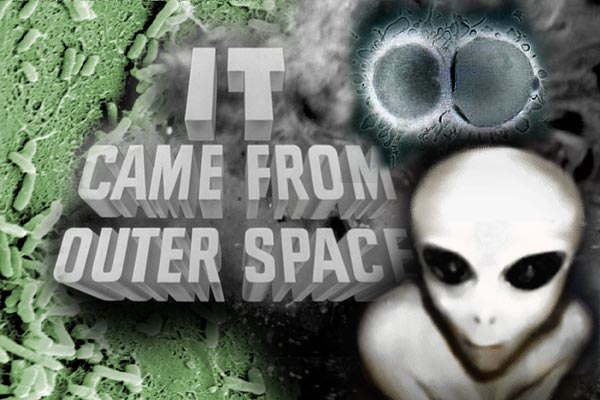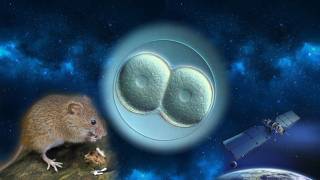They're heeeere? Scientists say alien life could already be lurking among, or even in, us
Source: ca.news.yahoo.com

For decades, scientists have scanned the heavens in search of extraterrestrial life. Perhaps they should have looked for alien life closer to home.
Variant life forms - most likely tiny microbes - could still be hanging around "right under or noses - or even in our noses," Paul Davies, an award-winning Arizona State University physicist, told a group of scientists Tuesday.
"How do we know all life on earth descended from a single origin?" he said, speaking at London's Royal Society, which serves as Britain's academy of sciences. "We've just scratched the surface of the microbial world."
The idea that alien micro-organisms could be hiding on Earth has been discussed for a while, according to Jill Tarter, the director of Search for Extraterrestrial Intelligence, a U.S. project that listens for signals from civilizations based around distant stars.
She said several of the scientists involved in the project were interested in pursuing the notion, which Davies laid out in a 2007 Scientific American article, "Are Aliens Among Us?"
So far, there's no answer. And finding one would be fraught with difficulties, as Davies himself acknowledged.

Paul Davies of Arizona State University poses for the Associated Press prior to his lecture
in the Royal Society in central London, Tuesday Jan. 26, 2010. LEFTERIS PITARAKIS / AP
Unusual organisms abound - including chemical-eating bacteria which dwell deep in the ocean and organisms that thrive in boiling-hot springs - but that doesn't mean they're different life forms entirely.
"How weird do they have to be to suggest a second genesis as opposed to just an obscure branch of the family tree?" he said. Davies suggested that the only way to prove an organism wasn't "life as we know it" was if it were built using exotic elements which no other form of life had.
Such organisms have yet to be found. Bruce Jakosky, an astrobiologist at the University of Colorado at Boulder, said the notion of alien life on Earth was "an interesting theoretical idea" but one that would be impossible to put odds on because "we have no idea what we're looking for."
Jakosky added that, if such life forms existed, humans would probably have little to fear, as their different biochemistry would tend to mitigate against infection or disease.
Davies agreed that the idea needed verification, telling the conference that "the scientist in me screams out for caution."
Still, he noted that less than 1 per cent of all the world's bacteria had been comprehensively studied - leaving plenty of room for scientists to find surprises in Earth's nooks and crannies.
Davies' call for alien-hunting scientists to look to their own backyards came as a pioneer in the search for extraterrestrial life in outer space told the conference the job appears to be more difficult than previously thought.
Frank Drake, who conducted the first organized search for alien radio signals in 1960, said that the Earth - which used to pump out a loud tangle of radio waves, television signals and other radiation - has been steadily getting quieter as its communications technology improves.
Drake cited the switch from analogue to digital television - which uses a far weaker signal - and the fact that much more communications traffic is now relayed by satellites and fiber optic cables, limiting its leakage into outer space.
"Very soon we will become very undetectable," he said. If similar changes are taking place in other technologically advanced societies, then the search for them "will be much more difficult than we imagined."
But Drake said scientists at SETI were excited by the possibility of using lasers to send super-bright flashes of light into space for a tiny fraction of a second. The flashes could theoretically be seen by an advanced civilization up to 1,000 light years away, and infrared versions of the devices could possibly send beams even further.
But Drake noted that the interstellar equivalent to turning a flashlight on and off only works if a prospective alien civilization wants to get in touch to begin with.
"There has to be altruism in the universe," he said.
Article from: YahooNews.ca






















